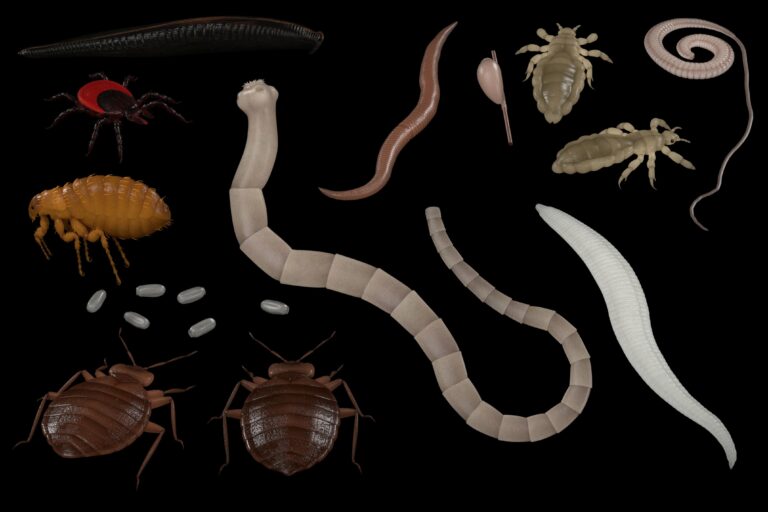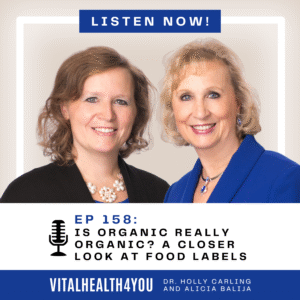Part I
The subject of worms, and the possibility of them effecting your life (or rather, infecting your body), sends shudders up many a spine. Worms or parasites and other opportunistic creepy crawlers like to take a free ride on any host that happens along their path. Mostly that entails rodents or wild animals, but when a human comes along, well, hey – why not? It’s a free meal. A parasite is an organism that lives on another organism – animal, fish, bird, human – anything with blood (referred to as a host), and benefits by sucking the nutrients out for their own benefit, but at the expense of the host. In a derogatory meaning, it is someone who exploits others, relying on them to support them, but gives nothing in return. We may well know of a person who could be considered in this light. In the world of parasites, this is also true.
Bed bugs, ticks, mosquitos and flies are all insects that can transmit diseases – mostly parasitic. That doesn’t mean that if you are bitten that you will get a parasite – it has to be a carrier, and not all are carriers. Cleanliness is essential for keeping bed bugs under control. Once present, they can be so difficult to get rid of, that the linens simply have to be thrown away. Using insect repellants when outdoors will help with the other guys. Keep away from brush in the wild – a favorite hide-out for ticks. They literally hang out on leaves and grasses – hind legs holding to the leaf or blade and forelegs stretched out in the air just looking for a host to brush by, then hopping on board. Stick to groomed trails when possible.
Are you a dog or cat lover? I know for years I heard that dog saliva was sterile. Well, that couldn’t be further from the truth. Those loving dog “kisses” can be a vector for transmitting a variety of parasites. Think about it. Dogs, cats and other animals lick their butts. If they are a host for parasites, they will do it more often. They lick their butt, then they lick you! I think I just lost my appetite! Their fleas can also be a vector for spreading parasites. Be careful when you clean up after them. Feces can be full of visible and non-visible parasites, bacteria and other organisms. It is best to wear a mask and gloves when cleaning a cat litter box. That also applies to cleaning up chicken manure. Many parasites are transmitted by inhalation of contaminated dust or air.
Air – so essential to life – how could that be? Water too. But I’m saving that, as well as the remedies for Part II of Worming into Your Life.
Part II
In Part I of Worming into Your Life, we explored how parasites can be a part of your life by vectors we weren’t even aware of. These include our dogs or cats, bed bugs, ticks, mosquitos, flies and fleas. That sweet “kiss” from our dog or cat may not be all that sweet!
But there are also other ways of getting parasites. One source is from inhaling contaminated air or dust, another way is through our water. Giardia and cryptosporidium are common parasites found in unclean water. Typically, this is caused by animal or human waste contaminating the water from upstream. But even in a less rural environment, they can be found. These parasites are becoming increasingly resistant to chlorinated water. The only option I’ve found (other than the standard boiling of water), is to get a reverse osmosis unit.
In our foods, we have to be careful. Wild animals and pigs are common carriers of cryptosporidium or trichinella. Tapeworm can be transmitted via raw fish or meat incompletely cooked. Eat out at restaurants that are clean and use good cleanliness practices. Red Snapper and Pacific salmon are often infested with roundworms and cyclospora has been found in some produce.
So many of these parasites are in our soils. Although most have a needful role in soil, some are pathogenic if we stick our dirty hands in our mouth after touching infected soil (usually soil that has had animal waste on it – some you can’t even see, like rodents’), we can get sick. If produce has been contaminated and we eat it, we could get sick. That may happen if an infected bird loses its bodily functions as it is flying overhead.
Many of these parasitic infections can be avoided by good hygiene. Wearing a mask and/or cleaning our hands after handling any kind of animal waste, working in the soil, or with plants that may have been infected. With our foods, washing them well, cooking them well, buying locally grown foods that come from clean farms can help, but there is no guarantee we won’t get sick.
But why do some get sick, and others, eating the same foods, don’t.
There are several reasons. One is because we have poor digestion. One of the roles of Hydrochloric Acid (HCL), the primary digestive enzyme in the stomach is to digest any parasite, bacteria, virus, mold, yeast or fungus that gets ingested. If our HCL levels are too low, either due to lifestyle factors or acid-stopping medications, these critters get by our first line of defense, and merrily stroll down the digestive system and take up residence. Another reason is if your immune system is too low.
While millions of Americans are housing pathogenic parasites, there are many options available to get rid of them.
©2017 Holly A. Carling, O.M.D., L.Ac., Ph.D.







